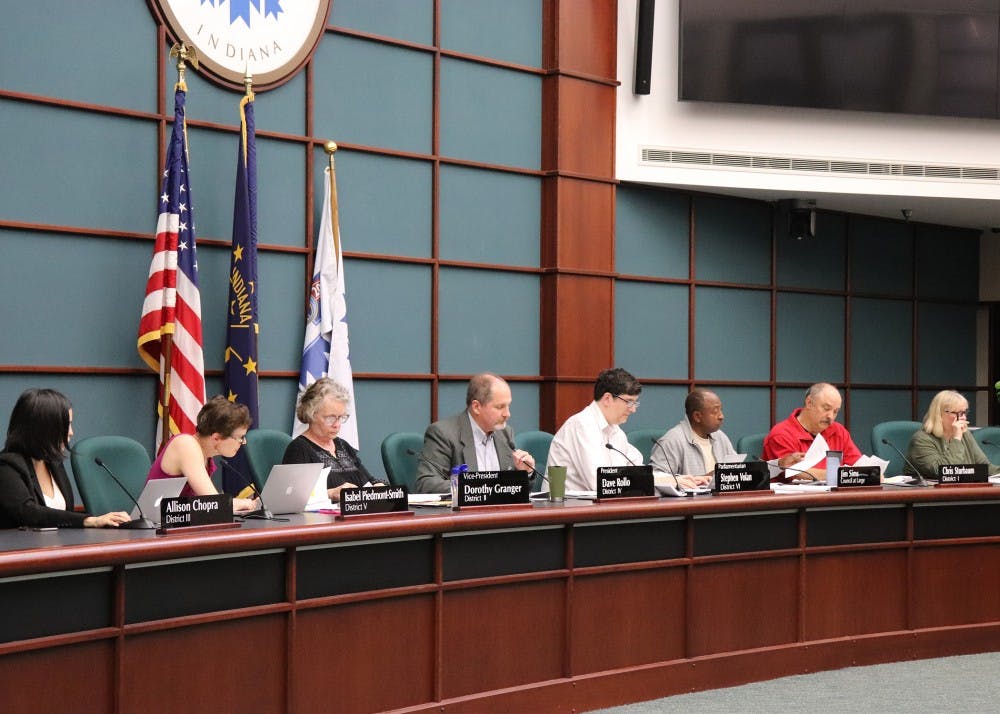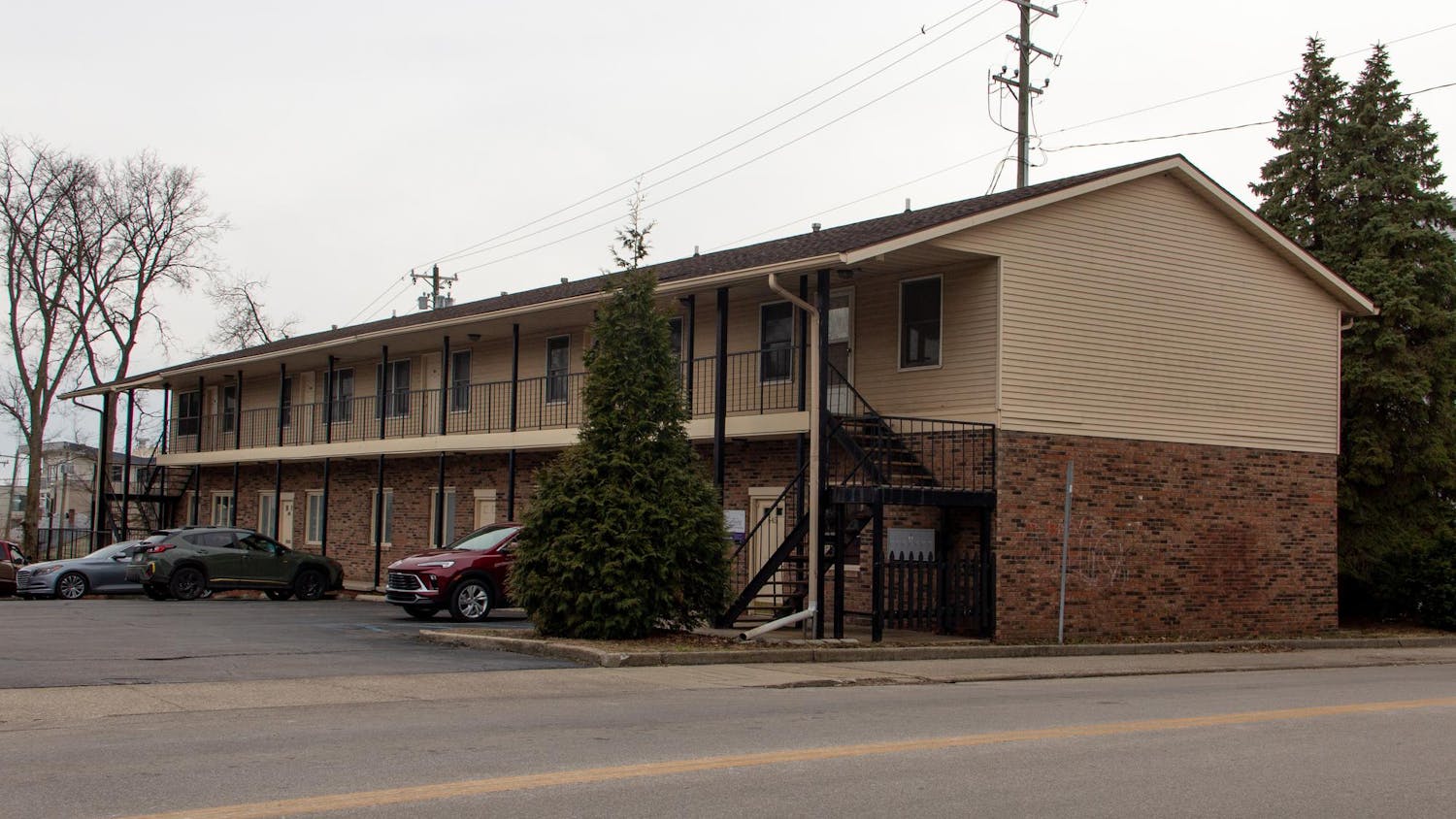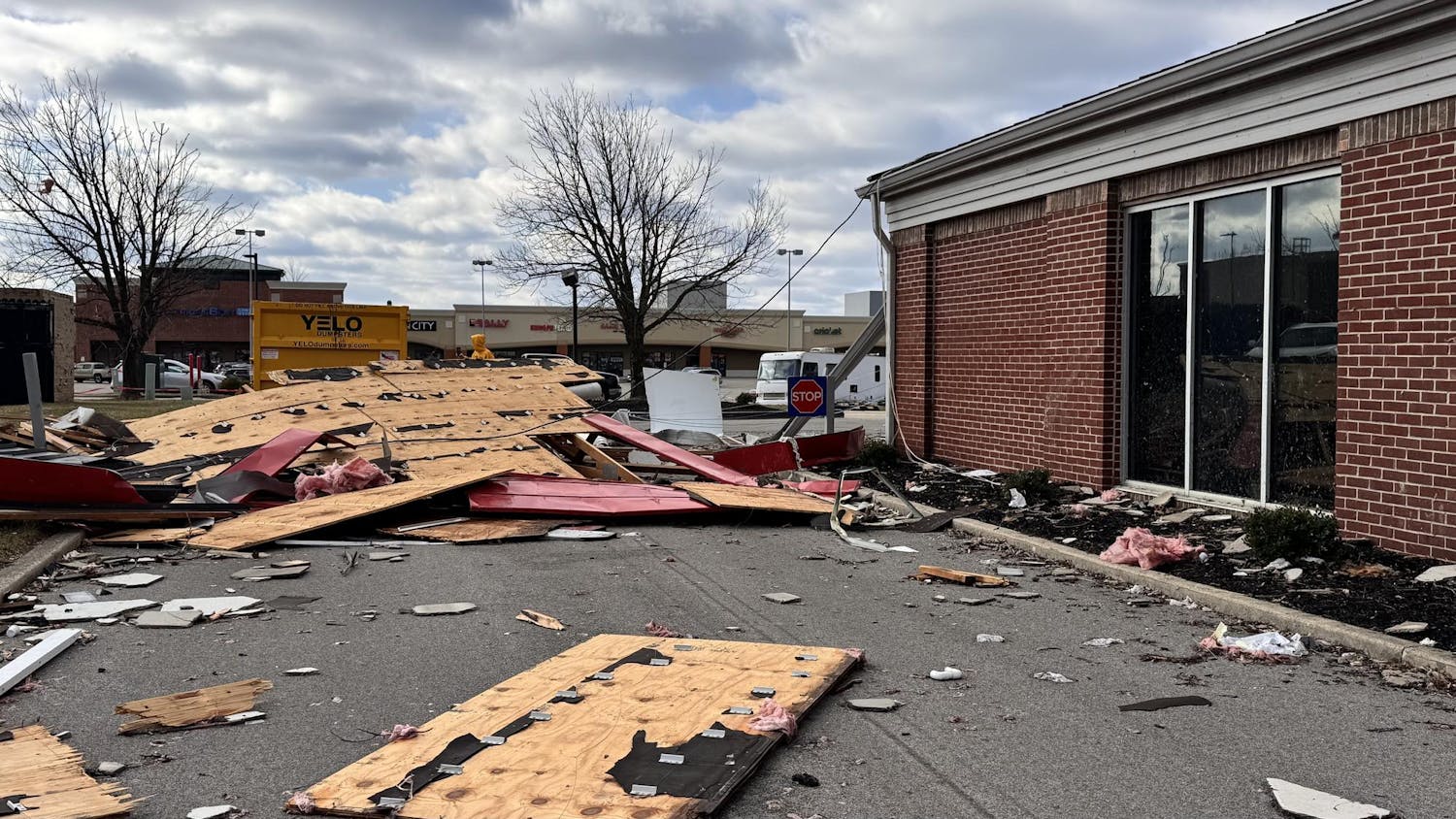The Bloomington City Council adopted a new transportation plan in a special session Wednesday after deliberating for months and passing 40 amendments.
“It’s a much better document than what we had just a few months ago,” council member Isabel Piedmont-Smith said.
The transportation plan is an amendment to the city’s Comprehensive Plan, a long-term vision for land use and development. After tonight’s 7-0 vote, the council will file a statement with the Plan Commission, which must respond within 60 days of the filing.
The transportation plan was developed with consulting firm Toole Design Group in 2018. City council first reviewed the transportation plan in January.
Beth Rosenbarger, planning services manager for the Planning and Transportation Department, tried to convey a sense of urgency by explaining the plan’s importance to daily work in her department.
One Planned Unit Development recently filed, and another is expected to file soon, Rosenbarger said. Until the council passes the plan, developers are held to old standards.
“We would love to be using an updated plan a year ago,” Rosenbarger said.
The council voted on more than 40 amendments Wednesday, developed over the past few months in response to concerns from council members, department staff and members of the public.
Piedmont-Smith proposed an amendment to prioritize reducing greenhouse gases and supporting alternative modes of transportation. It was adopted 7-0.
“It’s becoming more important since we passed the comprehensive plan in early 2018,” she said.
Piedmont-Smith referenced an October report from the Intergovernmental Panel on Climate Change, which underscored the need to take action to reduce greenhouse gas emissions.
“The City of Bloomington is a government of the world, and we have to do our part to reduce emissions,” the amendment states.
Many of the amendments addressed street typologies, which are new street classifications outlined in the plan.
The council passed Amendment 21, which makes about four dozen changes to street typologies.
The transportation plan recommends several new neighborhood greenways, also called neighborhood bikeways or bicycle boulevards, which are designed to help bicyclists by reducing traffic and managing vehicle speeds.
Council member Chris Sturbaum sponsored an amendment that would involve public input on these changes. The amendment was adopted 8-0.
“You really want buy-in from the neighbors that are living along those streets,” Sturbaum said.
Sturbaum proposed another amendment that would reconsider a design change to Kirkwood Avenue.
The transportation plan recommends making the segment from Indiana Avenue to Walnut Street a shared street, which is designed to integrate pedestrians, bicyclists, transit riders and motorists.
Shared streets are usually narrower, curbless and encourage slower vehicle speeds.
Rosenbarger said turning Kirkwood into a shared street would cost several million dollars, but the street’s infrastructure is due for maintenance regardless. She said an additional study, as Sturbaum proposed, would be redundant of work already done to create the plan.
The amendment was defeated 7-1.
Amendment 22, which was adopted 8-0, increases pedestrian space on main street and general urban street typologies to ensure pedestrians have more space when streets are redesigned or developed, Rosenbarger said.
A main street is an “economic and communal heart of a city” with high pedestrian activity, according to the plan. A general urban street connects suburban streets to downtown and has high traffic volume and speeds.
Of the extensive list of proposed amendments, just three were defeated, and two were not introduced.




